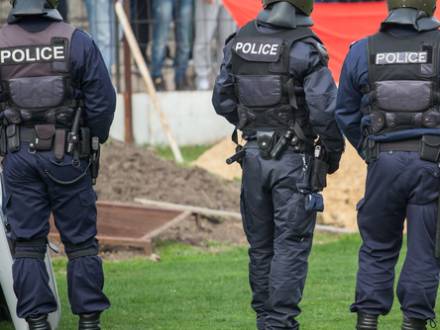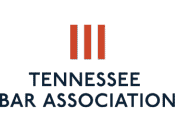Tennessee Lawmakers Pass "Buffer" When Approaching Police
 Legislators in the Tennessee General Assembly recently (April 21) passed a bill that allows a 25-foot "buffer zone" when citizens approach police officers across the state. Although the bill is similar to those passed in other states, many of those laws have already been struck down due to violations of the First Amendment. Many believe that the bill is less about the safety of police officers and more about making it more difficult for citizens to observe police misconduct.
Legislators in the Tennessee General Assembly recently (April 21) passed a bill that allows a 25-foot "buffer zone" when citizens approach police officers across the state. Although the bill is similar to those passed in other states, many of those laws have already been struck down due to violations of the First Amendment. Many believe that the bill is less about the safety of police officers and more about making it more difficult for citizens to observe police misconduct.
Proponents of the new bill point to a rash of neo-Nazi activities in downtown Nashville last summer. The bill would criminalize "intentionally approaching within 25 feet" a law enforcement officer who is engaging in his or her duties. The bill adds misdemeanor penalties for trespassing and littering on private property when the intent is intimidation.
First Amendment experts across America say this barrier is unconstitutional for journalists and for residents who are observing police misconduct. It may also be a way for law enforcement to stop some protests that have, to this point, been constitutionally protected. Current Tennessee laws already make it a crime to obstruct police officers when they are carrying out their official duties.
Perhaps the biggest concern is this: If there had been a 25-foot buffer zone around the police officers during the George Floyd incident, the woman who filmed the incident would likely have been unable to do so or even to see what was happening. While we certainly value the safety of law enforcement, we also want to be able to expose police brutality and excessive use of force. If you are a victim of excessive use of force or police brutality, contact an experienced Clinton, TN civil rights lawyer.
What Is Excessive Use of Force by Police?
When law enforcement officers use more physical force than is necessary to detain a person or control a situation, this is known as excessive use of force. Unfortunately, excessive use of force by law enforcement is all too common. More than 15 percent of civilians who are stopped and questioned experience unnecessary threats or excessive use of force from law enforcement.
These encounters result in at least 250,000 civilian injuries and more than 600 deaths each year. When you consider that more than 50 million people across the U.S. will have some level of contact with police during an arrest, a traffic stop, a street stop, a traffic accident, or resident-initiated contact, and millions of those will experience unnecessary police threats, or excessive use of force, you understand the problem.
While police officers have the authority to use force when necessary, it should be proportional to the threat they are encountering. Unjustified escalation of force violates the civil rights of those involved in the encounter. Excessive force can include the misuse of firearms, batons, or tasers, as well as physical violence such as kicking, hitting, or choking a civilian who is not resisting.
How is Excessive Force Determined?
One of the primary tools that has slowed the incidence of police brutality and excessive force is the cellphone. When virtually every person on the street has a cell phone in their hands or in their pockets, excessive use of force is much more likely to be captured on video and posted on the Internet for everyone to see. The perceived threat, the civilian's behavior, and the officer's response are all factors when determining whether the level of force or threats used can be considered excessive.
Contact an Anderson County, TN Civil Rights Lawyer
If you have experienced excessive use of force from law enforcement, you have the right to seek legal recourse and hold the officer accountable. A highly skilled Oak Ridge, TN civil rights attorney from The Baker Law Firm can help.
Attorney Baker is a presenter for the Tennessee Bar Association as CLE Faculty, presenting on Federal 1983 Litigation as it applies to civil rights, constitutional claims, qualified immunity, and excessive use of police force. He also teaches civil law cases at his law school. Call 865-200-4117 to schedule your free consultation.





![[[title]](/images/logo.png)


 Map & Directions
Map & Directions

